 Barack Obama's "A Promised Land" won't be released until Nov. 17, but it's already a bestseller based on pre-sales. (Crown) | Publicity for Barack Obama's memoir has kicked into high gear. Just a week before the presidential election, the New Yorker magazine posted a long excerpt from "A Promised Land" that focuses on the Affordable Care Act (read). It's a reminder, if one were needed, that Obama is a masterful writer. He begins with his children receiving a puppy from Sen. Ted Kennedy, who was already diagnosed with the brain tumor that would eventually take his life before the passage of universal-healthcare legislation. Then, Obama moves back to consider the historical context of healthcare in the United States, laying out the challenges that spurred the demand for change. Among other things, he notes that his proposal grew from a conservative plan called Romneycare. For an extra turn of the knife in the body of You Know Who, Obama describes his administration's efforts to track and prepare for the H1N1 flu pandemic in 2009. "My instructions to the public-health team were simple," he writes. "Decisions would be made based on the best available science, and we were going to explain to the public each step of our response — including detailing what we did and didn't know." I suppose that's what a leader has to settle for if he doesn't have faith in miracles. All in all, the New Yorker excerpt offers a fascinating presentation of the messy negotiations that eventually produced Obamacare. It's also a painfully candid diagnosis of how racist hatred of Obama — encouraged by Tea Party politicians — metastasized through the American body politic. But perhaps most important, this preview of the president's memoir reminds us — after four years of inane chants and vicious attacks — that a president can address Americans not as cult members or socialist enemies but simply as intelligent citizens. With a staggering 3 million first printing, "A Promised Land" will be released on Nov. 17, when — one way or another — America will be a different country than it is now. 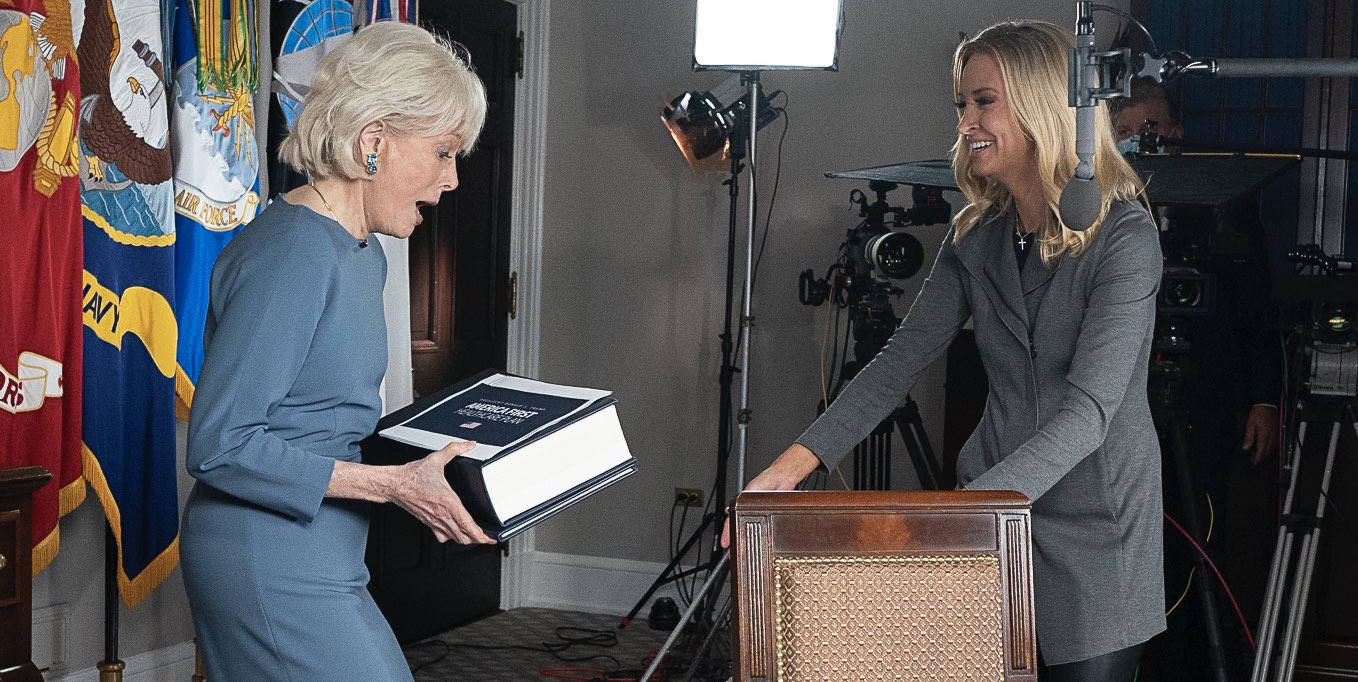 "60 Minutes" correspondent Lesley Stahl struggles to hold a book so weighty that it momentarily feels like President Trump's mythical healthcare plan. (White House Press Secretary Kayleigh McEnany/Twitter) | "She couldn't believe how HUGE it was." A very big book played a cameo in President Trump's embarrassing "60 Minutes" interview (story). Before the president ran squealing from Lesley Stahl, Press Secretary Kayleigh McEnany handed her a weighty tome. McEnany said it contained "just a small part of what President Trump has done for healthcare in the United States," demonstrating once again her preternatural immunity to irony. Some Twitter critics claimed the giant book was entirely blank. (Not true.) Others dared to hope it was finally the "brand new beautiful health care plan" that Trump has been promising America every day since 2015. (Alas, still not true.) According to the Washington Examiner, which reviewed a PDF of the mammoth book, it contains a hodgepodge of passages from the Tax Cuts & Jobs Act of 2017, an executive order and "a slew of other documents." A senior administration official told the Examiner that "it was expected that Stahl would return the book imminently as it formed part of the official record." Rest assured: This is one big book nobody wants to hang on to.  (Scribner) | My parents are staying with us this week. The moment Dad walked into the house, he spotted Evan Osnos's slim new biography of Joe Biden and started reading it (review). When he finished a few hours later, he announced, "Well, I'd vote for him." He's not the only one; Washington Post columnist Max Boot was moved by "Joe Biden," too (op-ed). What amazes me, though, is the timing of this political biography: just one week before the election! Scribner has printed 50,000 copies. If things don't go as Democrats hope on Tuesday, that's a whole lot of scrap paper. Osnos tells me he began thinking about the book this summer, which set up a very tight publishing schedule. "The idea was straightforward," he says. "We often reduce our politicians to some static bullet points — in Biden's case, his ups and downs, his adventures off-script. But, in Biden's case, I'd found that some of the most revealing insights emerged from overlooked moments: private struggles, and deep changes on the road to what he is now." With just a few months to go, Osnos started working on the book, building on his political reporting for the New Yorker. Does releasing it so close to the election pose a risk? Sure. But Osnos is philosophical about that. "If Biden doesn't become the president," he says, "it will only have added a chapter to a life of extraordinary turns that nobody predicted — which, in fact, is one of the things that inspired me to write about him at all." 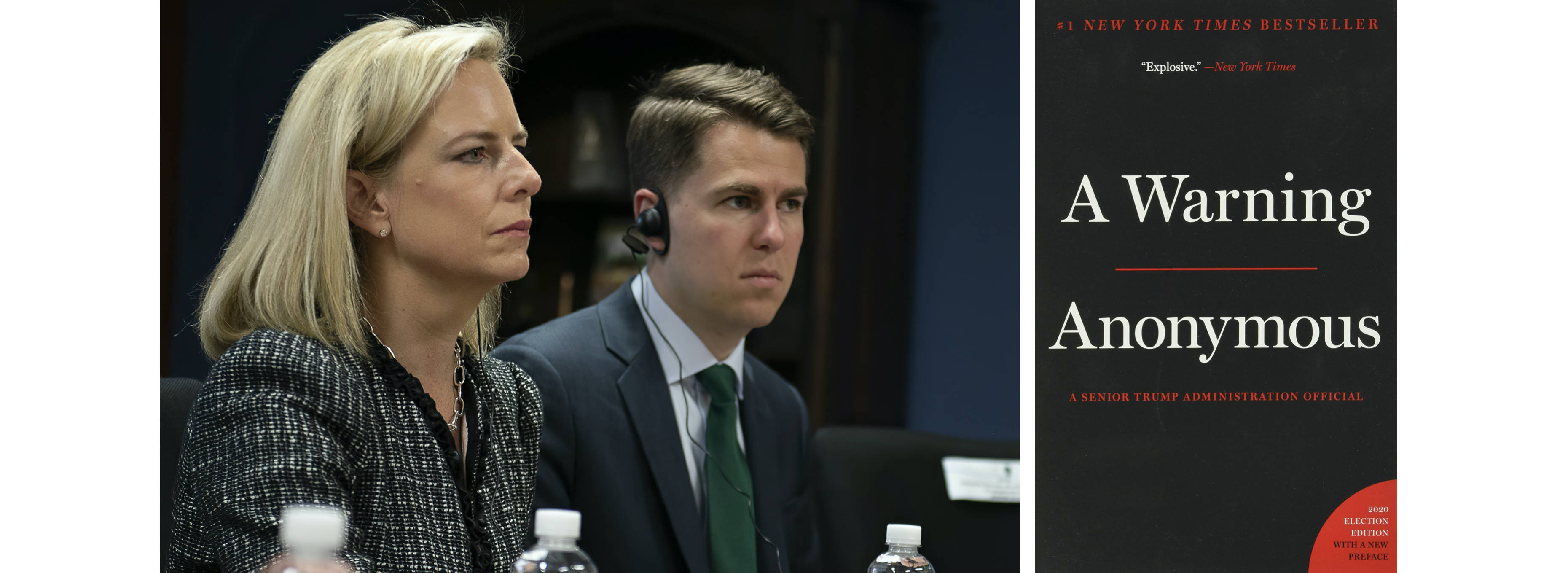 Then-Secretary of Homeland Security Kirstjen Nielsen, left, and then-Department of Homeland Security chief of staff Miles Taylor, formerly known as Anonymous. (Tim Godbee/Department of Homeland Security via AP). "A Warning" was released on Nov. 19, 2019. (Twelve) | The biggest publishing mystery of the Trump era has been solved – in the least satisfying way. On Wednesday, Miles Taylor announced that he is the anonymous author of the 2018 New York Times op-ed that claimed a secret cabal of Trump's own staff members was "working diligently from within to frustrate parts of his agenda and his worst inclinations" (story). A year later, Anonymous published "A Warning," a 259-page elaboration of his Times op-ed. It launched with 500,000 copies and racked up more pre-orders than any other nonfiction book in Hachette's history. Washington Post critic Carlos Lozada panned "A Warning" as a big folder of "Stuff We Already Know" (review). But no matter: President Trump was apoplectic; the Justice Dept. threatened to sue. With Victorian histrionics that nobody can carry off like the Gray Lady, the Times editors had claimed that Anonymous was "a senior official in the Trump administration whose identity is known to us and whose job would be jeopardized by its disclosure." Pundits speculated that the author might be Jeff Sessions! James Mattis! Even Mike Pence! But now we know that Anonymous was only the chief of staff for then-Secretary of Homeland Security Kirstjen Nielsen. In other words, not the power player some had feared and others had hoped for. Hachette never should have played along with the Times's exploitation of the public's trust. Yes, of course, far fewer people would have bought "A Warning" if they'd known the author was some unknown functionary in the Homeland Security Dept. But sexing him up as Anonymous was a cynical marketing ploy that now plays right into the hands of the most aggressive dissemblers in the Trump White House. 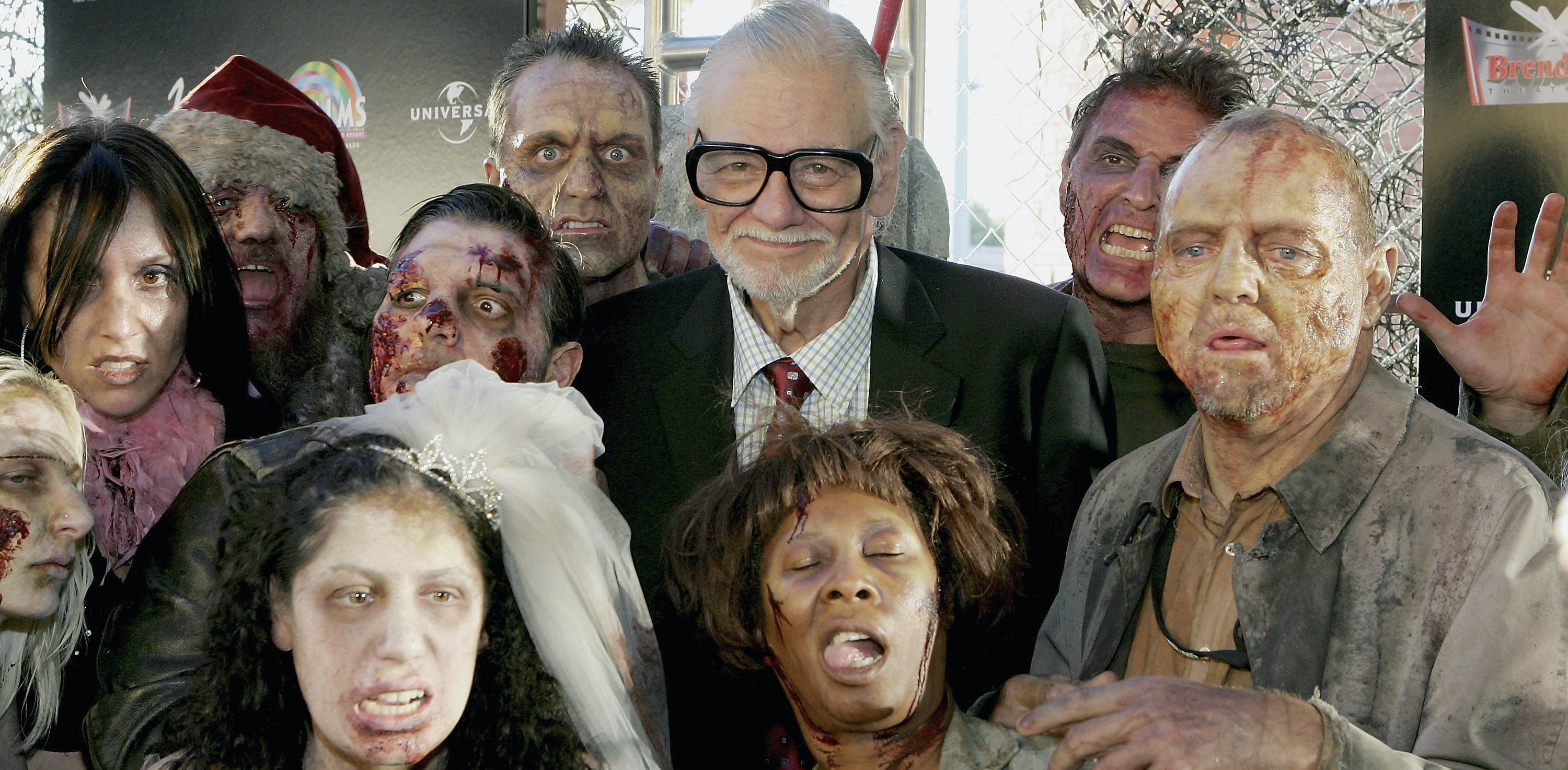 Director George A. Romero surrounded by zombies for the premiere of "Land of the Dead" in Las Vegas in 2005. (Photo by Ethan Miller/Getty Images) | Even if you're not running from them, the persistence of zombies is surprising. In pop culture, these undead pedestrians have outlived their far better looking vampire cousins. For an explanation, I dug up Paul Scott, a professor of science fiction at the University of Kansas. Dr. Scott (cue "Rocky Horror") tells me that zombies have survived because they're such a ready emblem of our ever-mutating anxieties. "The first zombie movies in the 1930s reflect labor struggles to unionize," Scott says. Later zombie flicks captured Americans' fears about communist infiltration, racial tensions and the AIDS epidemic. "It's no coincidence," he says, "that zombies have seen their biggest mainstream success in the wake of 9/11 and an age of heightened suspicion." Scott predicts that the ongoing coronavirus pandemic will reinvigorate interest in zombies again. "Covid has shown us that everything we hold dear can collapse suddenly and abruptly. I've always watched movies about apocalyptic events with a pinch of salt as terrible situations escalate so quickly — but no more." Scott is currently working on a new volume for the Contributions to Zombie Studies, which, he says, "encompasses everything from Buddhism and zombies to Shakespearean sonnets and zombies." Clearly, writing about zombies takes braaains. 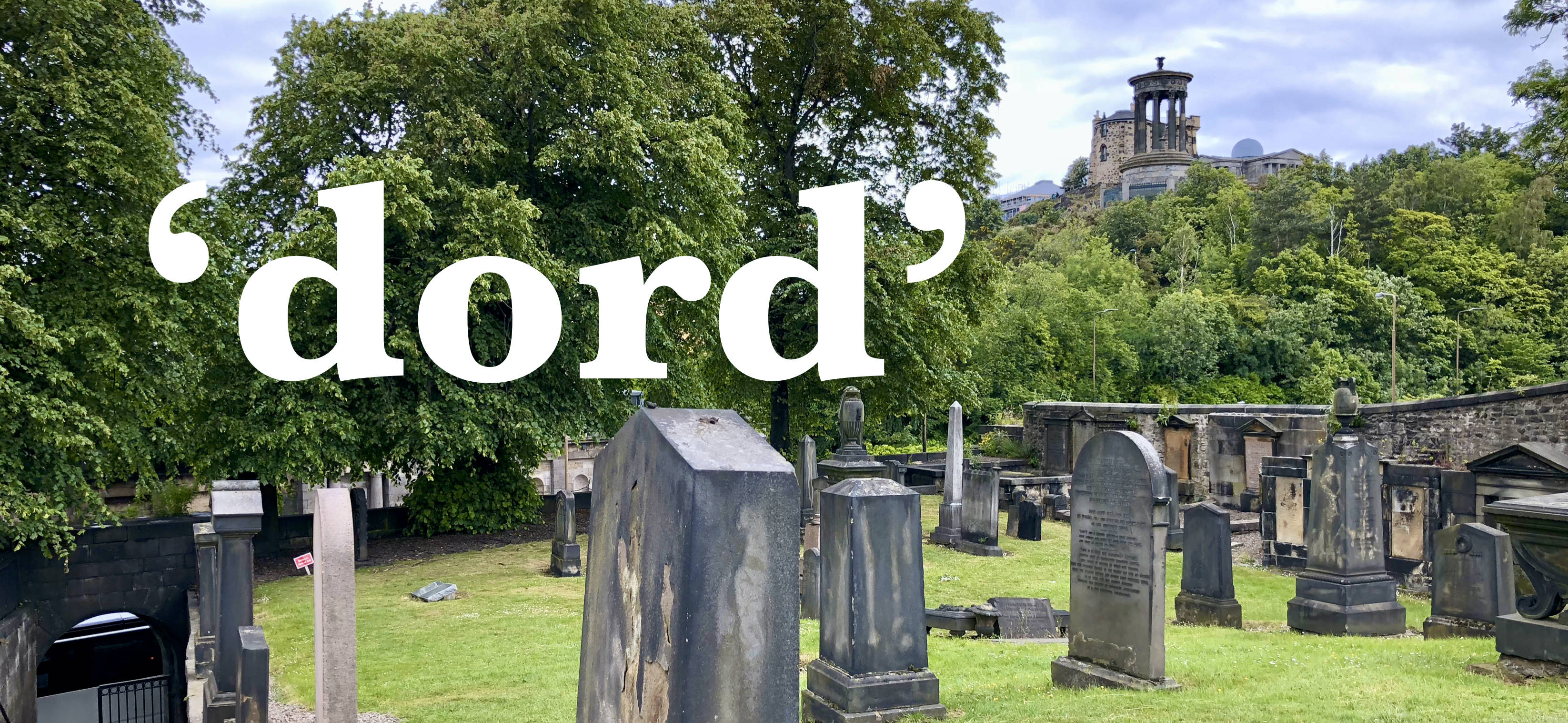 Old Calton Burial Ground, Edinburgh, Scotland (Photo illustration by Ron Charles/The Washington Post) | This week, "Word Matters," the addictive podcast from the editors of Merriam-Webster, calls forth the restless spirit of a "ghost word." As host Emily Brewster explains, that's a word that haunts the pages of the dictionary but is not actually used. In this case, the word is "dord," which appeared, mysteriously, in the 1934 "Webster's New International Dictionary." Despite attempts to exorcise it from future editions, "dord" persisted until 1947! The strange story of how "dord" arose — and how hard it was to kill — illustrates the elaborate process of dictionary production and makes for an awesome podcast episode (listen). Coincidentally, this episode also examines the ever-expanding definition of "awesome." 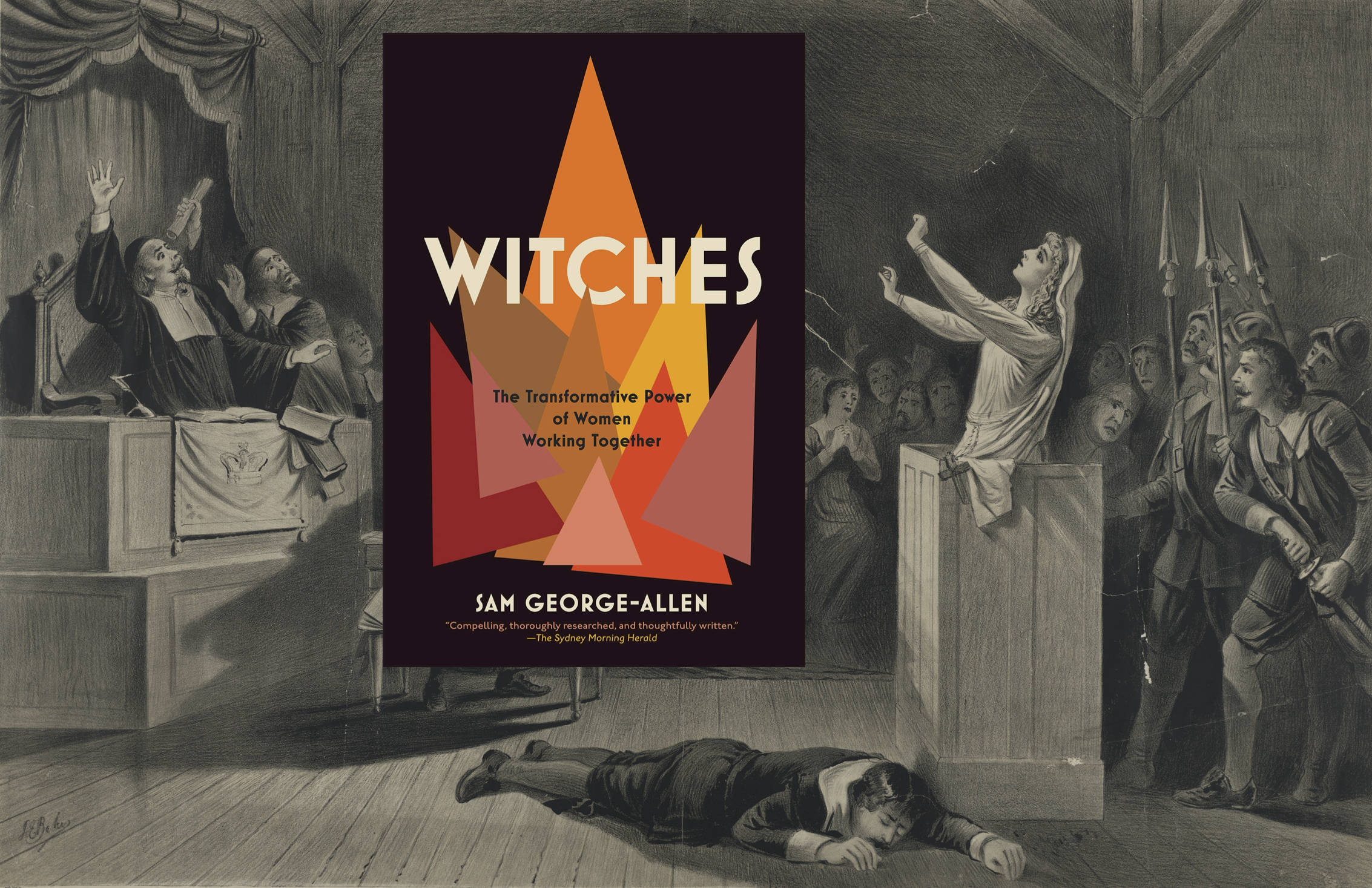 "Witches: The Transformative Power of Women Working Together," by Sam George-Allen (Melville). Background illustration is "The witch no. 1," by J.E. Baker, Geo. H. Walker & Co., c. 1892. (Library of Congress Prints & Photographs Division) | In a previous century, Mary Daly's "Gyn/Ecology" revolutionized the way I think about witches — and smart women in general. Her 1978 classic illustrates the way feminine wisdom, skill and power are systemically denigrated and demonized. The Australian writer Sam George-Allen sounds like one of Daly's many granddaughters. She recently published a deeply personal work of cultural criticism called "Witches: The Transformative Power of Women Working Together." Among other things, this book is a forceful rejection of the titillating stories of female rivalry that are so tirelessly recycled in the office, in pop culture and in political discourse. Separate chapters on girl bands, midwives and nuns illustrate the way our culture sneers at groups of women as a way of ignoring or denying the fact that such groups "are a fundamental force for change." The book is full of surprising insights. I had no idea, for instance, that women are leading Australia to modern sustainable methods of farming or that female strippers have effectively advocated for tougher laws against sexual assault. "Look what happens when we come together," George-Allen writes. "Of course we are witches." The National Book Critics Circle — a professional association of several hundred book reviewers — has issued a Criticism Equity Pledge in hopes of increasing the representation of Black, Indigenous and People of Color (BIPOC). The pledge asks critics and book section editors to "assign at least 30% of the books covered annually to be by BIPOC; assign at least 30% of the critics reviewing books annually to be by BIPOC; and avoid matching these critics only with books by other BIPOC." This pledge by the newly reconstituted NBCC board is a response to a series of bitter arguments about diversity that tore apart the organization earlier this year. (In brief: One board member was accused of racism. Another was accused of breaking the board's confidentiality rules. There were threats of lawsuits. Many board members resigned. It was the kind of vicious internecine battle that literary nonprofits specialize in.) Slapping a number — like 30 percent — on the selection of books and reviewers feels uncomfortably mechanical, a betrayal of artistic sensibility. But several years ago, when I was trying to increase the representation of women in our books pages, I didn't make any real progress until I started counting. Before I began keeping actual data, my good intentions were repeatedly thwarted by ingrained habits. The Criticism Equity Pledge may not radically diversify the nation's lily-white books pages — fewer than 80 reviewers have signed on so far — but the effort raises an important issue and, I hope, pushes us in the right direction. 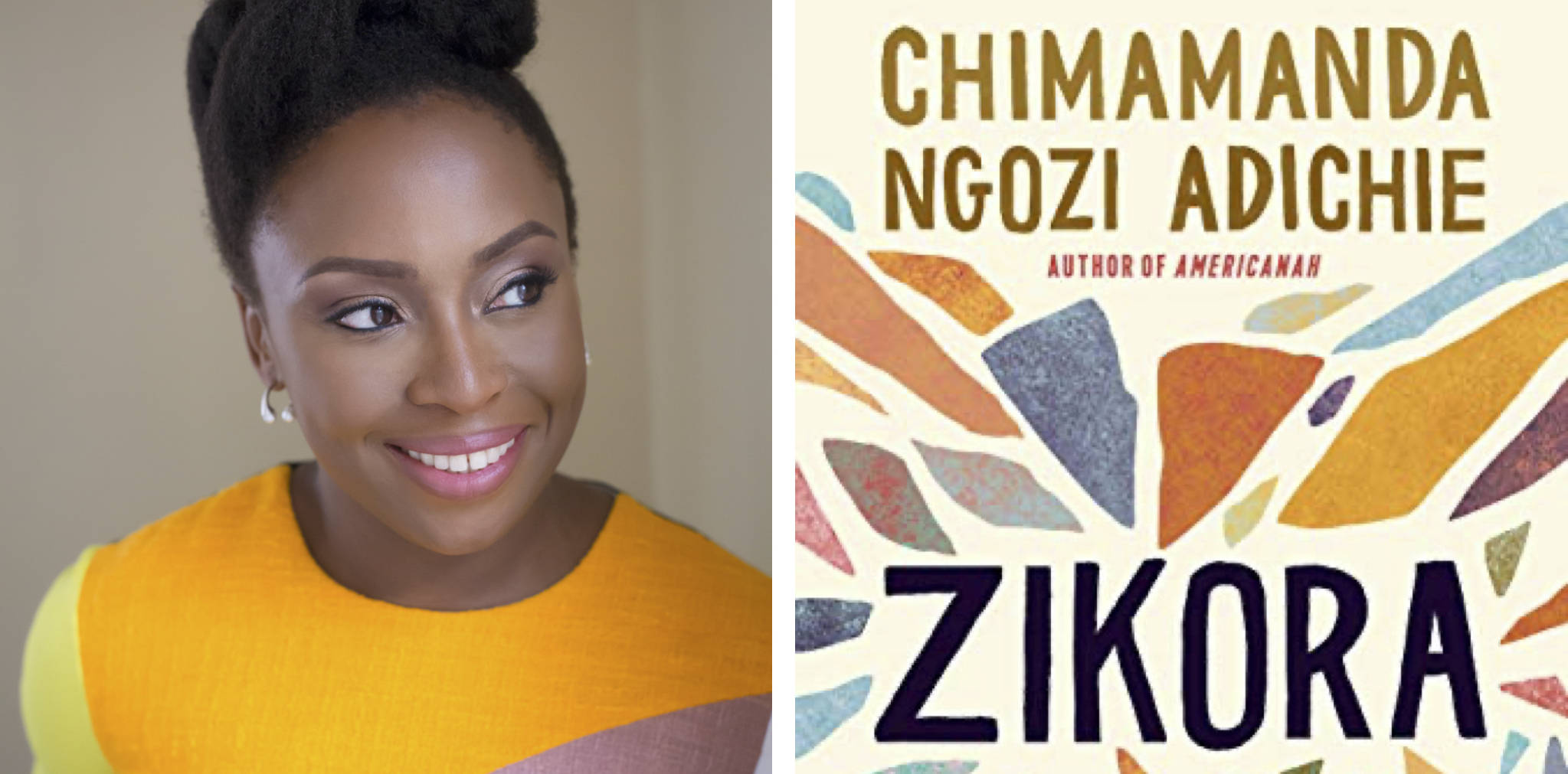 Chimamanda Ngozi Adichie (Photo by Wani Olatunde); Amazon Original Stories | "Americanah," by MacArthur "genius" Chimamanda Ngozi Adichie, sat on the bestseller list for more than a year and made the novelist world famous (review). Beyoncé's use of her TED talk, "We Should All Be Feminists," didn't hurt (interview). (Possibly the only time I've ever impressed my younger daughter is when I was able to introduce her to Adichie at the 2013 National Book Critics Circle Awards, where "Americanah" won the fiction prize.) Since then, Adichie has published a couple of short stories in the New Yorker, but this week she released a story through Amazon Original Stories. (Amazon CEO Jeff Bezos owns The Washington Post.) The story, called "Zikora," is about a 39-year-old lawyer giving birth. Her perfect boyfriend broke up with her the day she told him she was pregnant, so she's going through labor with her Nigerian mother instead of him by her hospital bed. "Ours was an ancient story," she says, "the woman wants the baby and the man doesn't want the baby and a middle ground does not exist." Full of the witty and mournful observations Adichie's fans know, "Zikora" is a reflection on the baffling and infuriating irresponsibility of men — and the long-suffering love of mothers. (There's an audio version, too, narrated by Adepero Oduye from "Pariah" and "12 Years a Slave"). 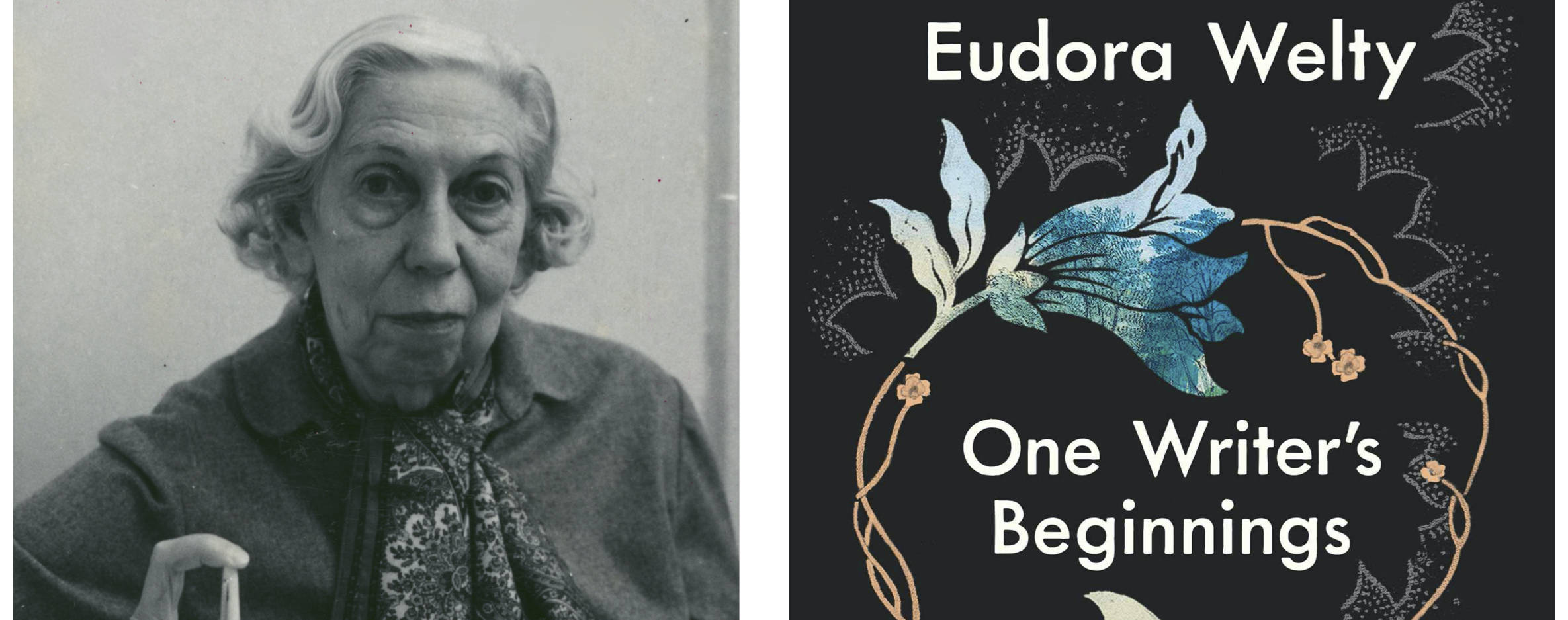 Eudora Welty (Photo by Bernard Gotfryd, 1980; the Bernard Gotfryd Photograph Collection at the Library of Congress); Scribner | Is there a writer in your life? I ask because Scribner has just published a new edition of Eudora Welty's "One Writer's Beginnings," and you need to order holiday gifts as early as possible this year. Originally delivered as a series of three lectures at Harvard — "Listening," "Learning to See," "Finding a Voice" — this little book quickly became a bestseller and a modern-day classic. The new edition contains an introduction by former U.S. Poet Laureate Natasha Trethewey, who, like Welty, was born in Mississippi. She calls "One Writer's Beginnings" "a kind of primer for being a citizen of the world, for answering our own particular callings and joining the long conversation that is human history." Trethewey notes that "whether or not we are writers, we tell a story to ourselves about our lives, the arc of them — what gives meaning and purpose, and connects us to others." 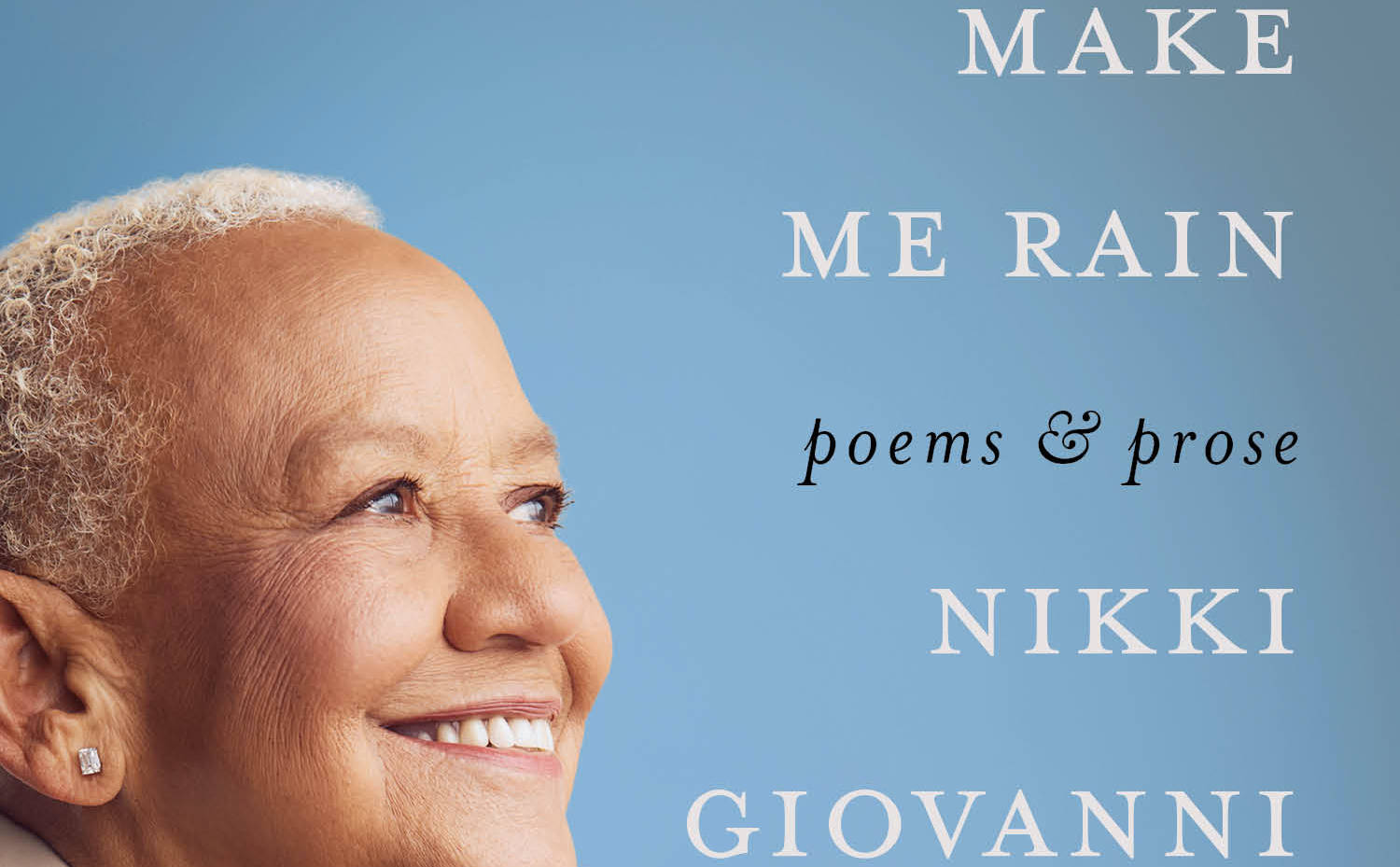 (William Morrow) | Nikki Giovanni's extraordinary career spans more than 50 years and dozens of books. Her new poetry collection, "Make Me Rain," offers a sweeping vision of Black experience contending with White racism — from the beginnings of the United States to the reign of Donald Trump. She's sometimes funny, sometimes angry, always courageously insightful. VOTE It's not a hug
Nor mistletoe at Christmas It's not a colored egg
At Easter
Nor a bunny hopping
Across the meadow It's a Vote Saying you are
A citizen Though it sometimes
Is chocolate
Or sometimes vanilla
It can be a female
Or a male
It is right
Or left
I can agree
Or disagree but
And this is an important but
I am a citizen I should be able
To vote from prison
I should be able
To vote from the battlefield
I should be able
To vote when I get a driver's license
I should be able
To vote when I can purchase a gun
I must be able
To vote
If I'm in the hospital
If I'm in the old folks' home
If I'm needing a ride
To the Polling Place I am a citizen I must be able to vote Folks were lynched
Folks were shot
Folks' communities were gerrymandered
Folks who believed
In the Constitution were lied to
Burned out
Bought and sold
Because they agreed
All Men Were Created Equal Folks vote to make us free It's not cookies
Nor cake
But it is the icing
That is so sweet Good for the Folks
Good for Us From "Make Me Rain," by Nikki Giovanni (William Morrow, 2020). Reprinted with permission of the publisher. All rights reserved. 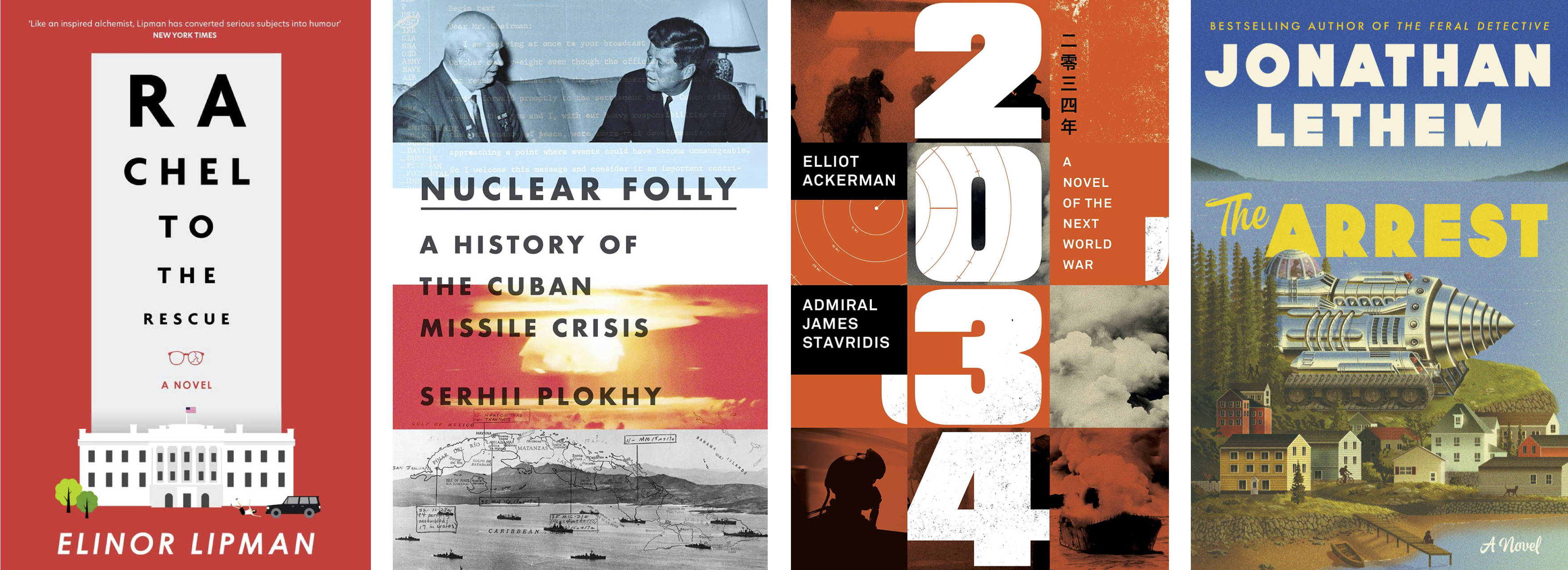 Lightning; W. W. Norton; Penguin Press; Ecco | Happy Halloween to you all. Feels like it'll be a strange one this year with no trick-or-treaters. But perhaps the world is already scary enough. As I mentioned, my folks are staying with us for the week in Washington on their way down to South Carolina. My mom is reading "Rachel to the Rescue," Elinor Lipman's new satire about a woman fired from the Trump White House. My dad is reading galleys about geopolitical conflicts past and future: "Nuclear Folly: A History of the Cuban Missile Crisis," by Serhii Plokhy (forthcoming April 13); and "2034," a dystopian novel about nuclear war between China and the U.S., written by Elliot Ackerman and Admiral James Stavridis (forthcoming March 9). Both books, he says, are terrifying. You heard it here first. I'm reading Jonathan Lethem's "The Arrest," which I'll tell you about next week. And my wife – thank you for asking – is busy writing college recommendations: 35 done, six to go. SEND MORE CHOCOLATE. If you have any questions or comments about our book coverage, contact me at ron.charles@washpost.com. And if you know someone who would enjoy this newsletter, help me out and forward it to them. To subscribe, click here.
Interested in advertising in our bookish newsletter? Contact Michael King at michael.king@washpost.com. |